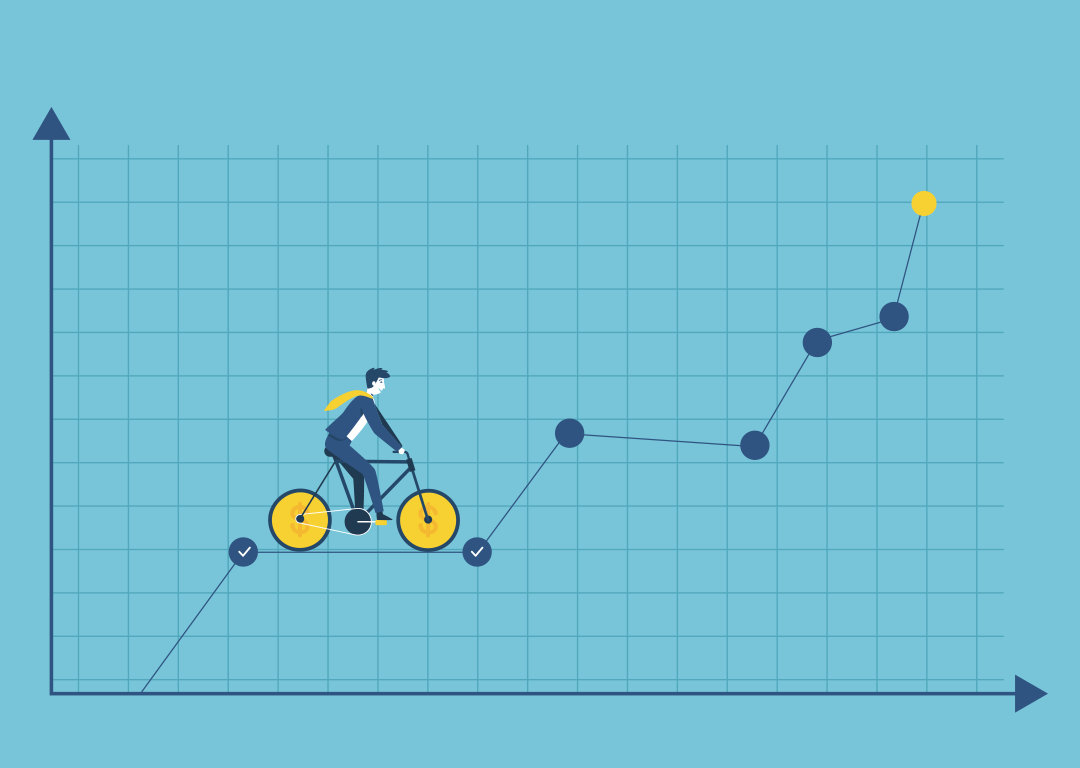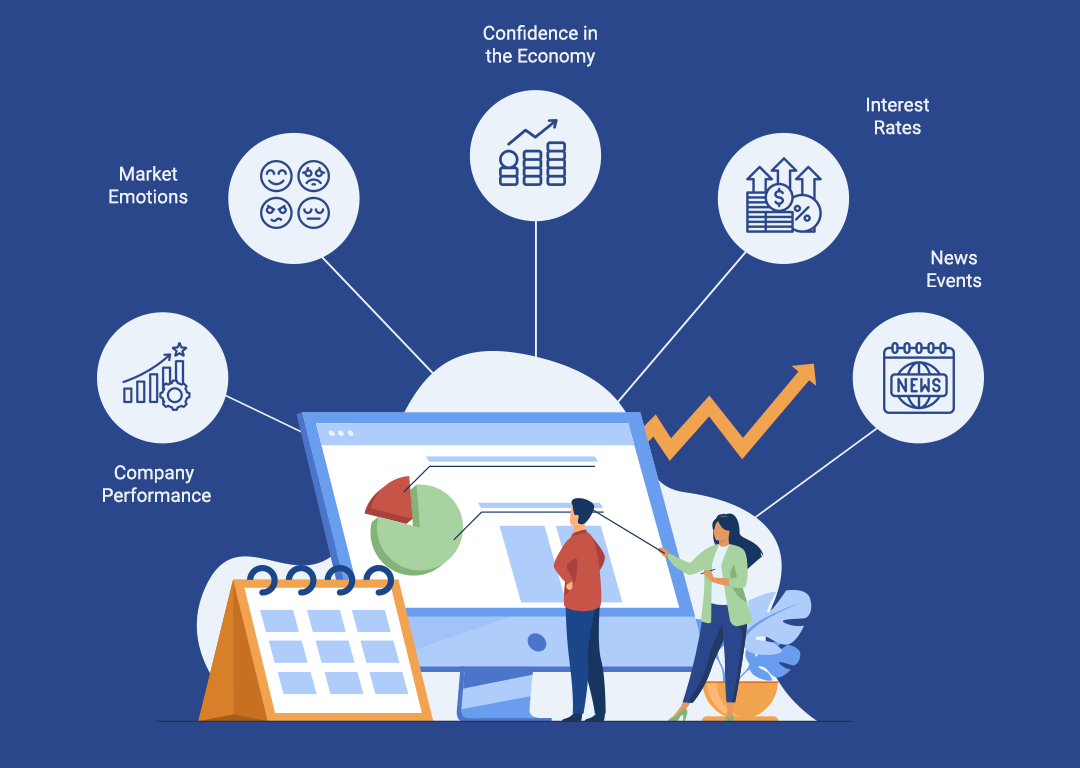Why Stock Price Change?
The demand and supply factor leads to price fluctuation at a specific time. High demand for a stock drives the stock price higher because people are ready to pay more money to own it. When more people want to buy the same thing, they bid on each other. To win the bid, some pay more, resulting in a stock price increase. Always remember when you buy, someone is selling at that price. So the price buyers and sellers agree on keeps changing throughout the day. (stock price change)

We can add that kind of image here by defining two points given above
Conversely, when there is a low demand for a stock, more people want to sell it than buy it, which drives down the price.
Factors that impact the demand for the product are:
- Company Performance: Changes in a company’s financial performance can impact its stock price. For example, if a company releases sound earnings reports or announces plans for future growth, its stock price rises. Contrarily, if the company’s earnings are weaker than expected or face challenges, its stock price can fall.
- Market Emotion: Shifts in overall market sentiment can also impact stock prices. For example, if investors are optimistic about the stock market, stock prices can rise. In contrast, if investors are pessimistic, stock prices usually fall.
- Confidence in the economy: Economic indicators, such as gross domestic product (GDP) growth, unemployment rates, and inflation, can also impact stock prices. For example, if the economy is growing, stock prices usually rise, while if the economy is in a downturn, stock prices fall.
- Interest Rates: If interest rates rise, stocks may become less attractive to investors, and stock prices may fall. Detailed info was explained in the last module.
- News Events: News events, such as natural disasters, geopolitical events, and changes in government policies, can also impact stock prices.

The demand and supply factor leads to price fluctuation at a specific time. High demand for a stock drives the stock price higher because people are ready to pay more money to own it. When more people want to buy the same thing, they bid on each other. To win the bid, some pay more, resulting in a stock price increase. Always remember when you buy, someone is selling at that price. So the price buyers and sellers agree on keeps changing throughout the day. (stock price change)

We can add that kind of image here by defining two points given above
Conversely, when there is a low demand for a stock, more people want to sell it than buy it, which drives down the price.
Factors that impact the demand for the product are:
- Company Performance: Changes in a company’s financial performance can impact its stock price. For example, if a company releases sound earnings reports or announces plans for future growth, its stock price rises. Contrarily, if the company’s earnings are weaker than expected or face challenges, its stock price can fall.
- Market Emotion: Shifts in overall market sentiment can also impact stock prices. For example, if investors are optimistic about the stock market, stock prices can rise. In contrast, if investors are pessimistic, stock prices usually fall.
- Confidence in the economy: Economic indicators, such as gross domestic product (GDP) growth, unemployment rates, and inflation, can also impact stock prices. For example, if the economy is growing, stock prices usually rise, while if the economy is in a downturn, stock prices fall.
- Interest Rates: If interest rates rise, stocks may become less attractive to investors, and stock prices may fall. Detailed info was explained in the last module.
- News Events: News events, such as natural disasters, geopolitical events, and changes in government policies, can also impact stock prices.

